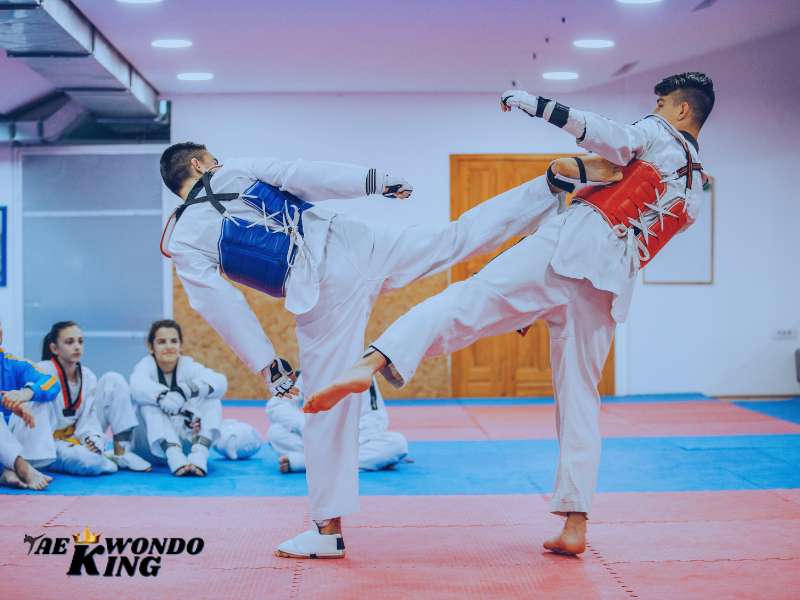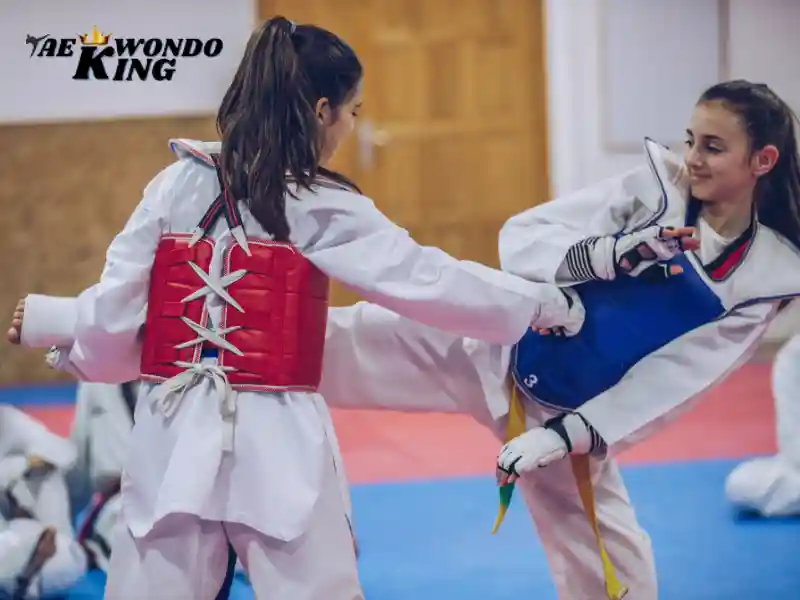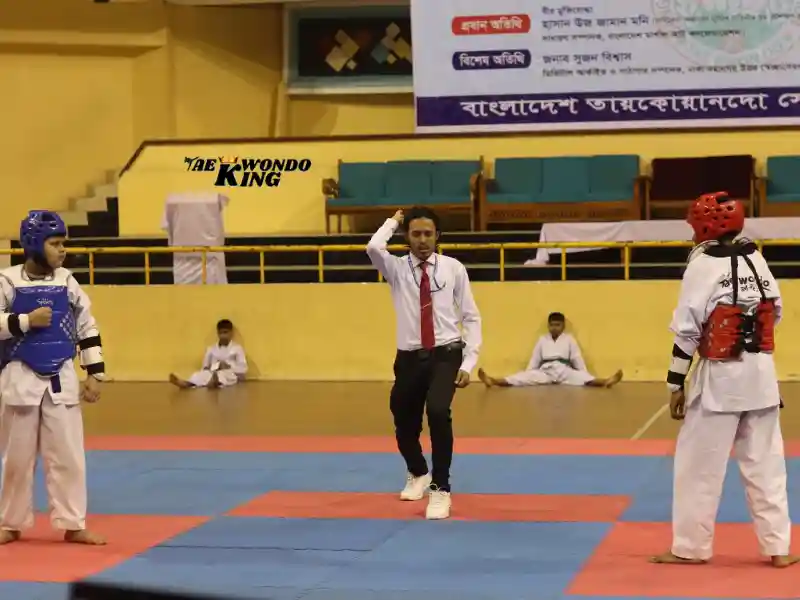
As a Taekwondo referee, it is important to consider the pros and cons of officiating in this martial art before deciding to take on this role. If you’re considering becoming a Taekwondo referee, weighing the benefits and drawbacks of the position is essential. With my background in this area, I can provide valuable information on what you can anticipate. Let’s start with the advantages and disadvantages of being a Taekwondo referee.
As a Taekwondo practitioner with extensive experience both on and off the mat, I’ve had the unique opportunity to serve as a national referee in addition to my roles as a player and coach. The position of a Taekwondo referee is multifaceted, encompassing responsibilities that range from ensuring fair play to upholding the integrity of the sport. In this article, I will delve into the pros and cons of being a Taekwondo referee, drawing from my own experiences and insights gained over the years of officiating matches at various levels.
See the latest Top-Rated Bodyprox Knee Brace Price Today Used by Champions.

The Pros of Taekwondo Referee:
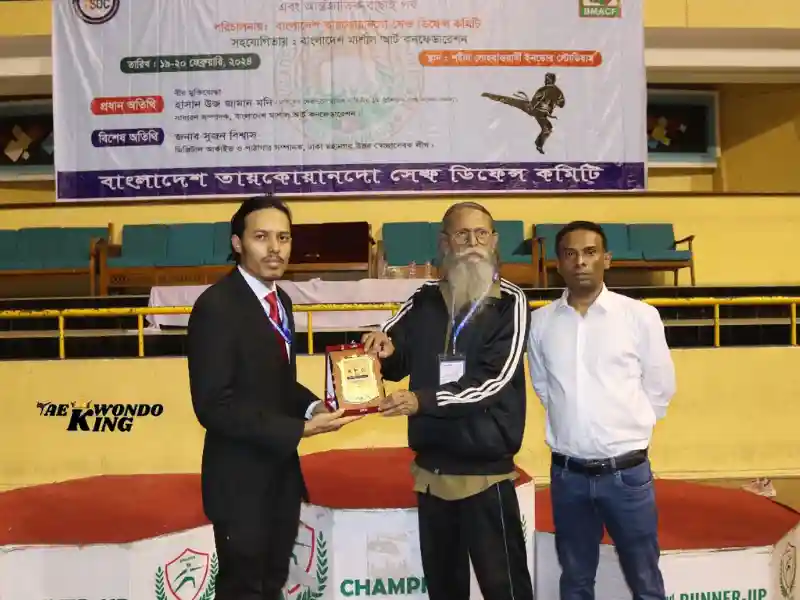
Contributing to the Sport’s Integrity:
One of the most rewarding aspects of being a Taekwondo referee is the opportunity to uphold the integrity of the sport. Referees play a crucial role in ensuring that matches are conducted fairly and according to the governing bodies’ rules and regulations.
By maintaining impartiality and making decisions based on objective criteria, referees help preserve the essence of Taekwondo as a martial art rooted in discipline and respect.
Enhancing Decision-Making Skills:
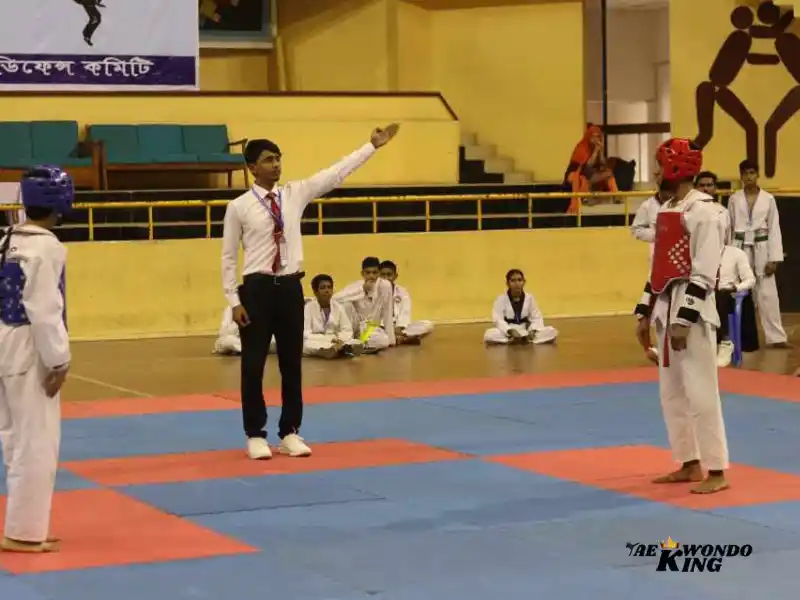
Officiating Taekwondo matches requires quick thinking and sound judgment, especially in high-pressure situations. As a referee, you must make split-second decisions that can have a significant impact on the outcome of a match. This constant exercise in decision-making helps sharpen your cognitive abilities and improves your ability to assess complex situations under pressure.
Being a Steward of Fair Play:
Fair play is a cornerstone of Taekwondo, and referees serve as guardians of this principle. By enforcing the rules consistently and impartially, referees ensure that all competitors have an equal opportunity to showcase their skills and compete on a level playing field. Upholding the spirit of fair play fosters respect among athletes and promotes sportsmanship within the Taekwondo community.
Professional Development and Growth:
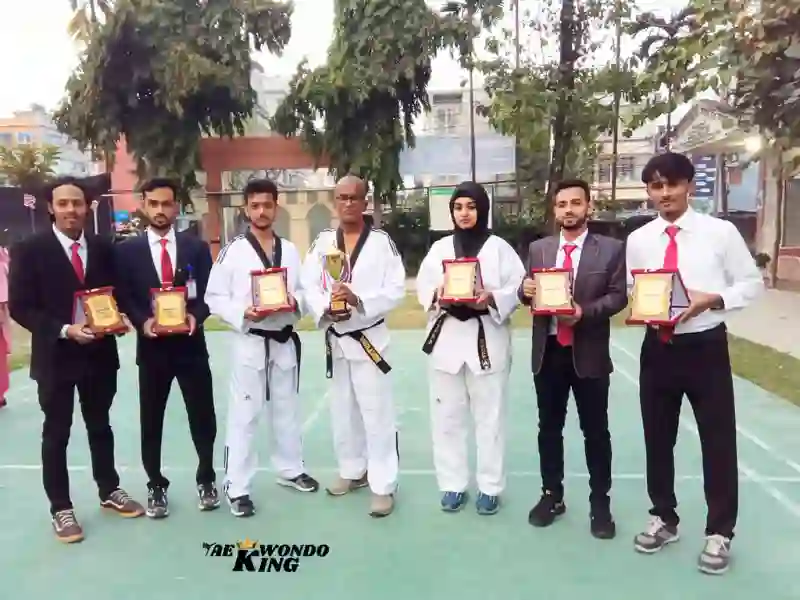
Serving as a Taekwondo referee offers valuable opportunities for professional development and growth. Through training programs, workshops, and certification courses, referees have the chance to deepen their understanding of the sport, refine their officiating skills, and stay updated on changes to the rules and regulations. This continuous learning process not only enhances the quality of officiating but also fosters personal and professional growth.
Contribution to the Development of Athletes:
Referees play a pivotal role in the development of Taekwondo athletes by providing feedback and guidance during matches. By offering constructive criticism and pointing out areas for improvement, referees help athletes understand their strengths and weaknesses.
They are ultimately contributing to their growth and development as martial artists. This mentorship aspect of refereeing can have a lasting impact on the trajectory of an athlete’s career.
Building Relationships within the Taekwondo Community:

Officiating Taekwondo matches allows referees to forge meaningful connections within the Taekwondo community. Whether it’s interacting with fellow referees, coaches, athletes, or spectators, referees have the opportunity to network and build relationships with individuals who share a passion for the sport. These connections not only enrich the officiating experience but also contribute to a sense of camaraderie and belonging within the Taekwondo community.
The Cons of Taekwondo Referee:
Facing Criticism and Pressure:
Officiating Taekwondo matches can be a high-pressure endeavor, particularly when faced with scrutiny and criticism from athletes, coaches, and spectators. Referees must make split-second decisions under intense scrutiny, and even minor mistakes can lead to backlash from those invested in the outcome of the match. Dealing with criticism and maintaining composure in the face of pressure can be challenging and emotionally taxing.
Navigating Subjectivity and Interpretation:
Despite efforts to enforce the rules consistently, refereeing Taekwondo matches often involves a degree of subjectivity and interpretation. Decisions such as scoring points, assessing penalties, and determining the outcome of a match can be influenced by individual judgment and perspective. Navigating this subjectivity while maintaining fairness and impartiality requires referees to exercise discretion and adhere to the principles of justice and equity.
Balancing Authority and Respect:
Maintaining authority while earning the respect of athletes, coaches, and spectators can be a delicate balancing act for referees. Establishing credibility and commanding respect requires confidence, assertiveness, and a firm grasp of the rules.
However, overzealous officiating or perceived bias can undermine credibility and erode trust in the referee’s judgment. Striking the right balance between authority and respect is essential for effective officiating.
Physical and Mental Demands:
Officiating Taekwondo matches can be physically and mentally demanding, particularly during long tournaments or high-intensity matches. Referees must remain alert and focused throughout the match, constantly monitoring the actions of the athletes and enforcing the rules accordingly. The physical demands of moving around the mat, maintaining proper positioning, and reacting quickly to dynamic situations can take a toll on referees, requiring endurance and resilience.
Dealing with Conflict and Controversy:
Conflict and controversy are inherent aspects of competitive sports, and Taekwondo is no exception. Referees often find themselves in heated exchanges between athletes, coaches, and spectators, particularly when contentious decisions are made. Managing conflict and defusing tense situations requires diplomacy, tact, and effective communication skills. Referees must remain impartial and level-headed in the face of adversity, striving to uphold the integrity of the sport while navigating complex interpersonal dynamics.
Exposure to Risk of Injury:
Despite efforts to maintain safety protocols and minimize risk, refereeing Taekwondo matches exposes officials to the possibility of injury. Referees must remain vigilant and aware of their surroundings at all times to avoid collisions with athletes or stray kicks and punches.
Additionally, officiating matches with aggressive or inexperienced competitors increases the risk of accidental contact and injury. Prioritizing safety and adhering to proper officiating protocols is paramount for mitigating the risk of injury.
What are the pros and cons of a Taekwondo Referee?
Being a Taekwondo referee has several advantages, such as the opportunity to be actively involved in the sport, gain a deeper understanding of the rules and techniques, and contribute to the fair and smooth running of competitions. It can also be a way to stay active and engaged in the Taekwondo community.
On the other hand, there are potential drawbacks as well. Refereeing can be a high-pressure position, as decisions made during matches can have a significant impact on the outcome. It also requires a strong understanding of the rules and the ability to make quick and fair judgments, which can be challenging. Additionally, referees may face criticism and scrutiny from competitors, coaches, and spectators. Despite these challenges, many individuals find the experience of being a Taekwondo referee to be rewarding and fulfilling.
See the latest Top-Rated Bodyprox Knee Brace Price Today Used by Champions.

Conclusion,
The role of a Taekwondo referee is both challenging and rewarding, encompassing a wide range of responsibilities and experiences. While officiating matches offers opportunities for professional development, mentorship, and contribution to the integrity of the sport, it also comes with its share of challenges, including criticism, pressure, and conflict.
Ultimately, the ability to navigate these challenges with integrity, fairness, and professionalism is what defines a successful Taekwondo referee. As someone who has experienced the highs and lows of officiating firsthand, I can attest to the profound impact that this role has on both the individual and the Taekwondo community as a whole.
FAQ
Why Taekwondo is a good sport?
Taekwondo is a fantastic sport for many reasons. It helps improve physical fitness, mental discipline, and self-confidence. It also teaches important values like respect, perseverance, and focus. Additionally, taekwondo training provides valuable self-defense skills and can be a great way to relieve stress and improve overall well-being. Overall, it is a well-rounded and beneficial sport for people of all ages.
What is interesting about Taekwondo?
Taekwondo is a martial art that originated in Korea and is known for its emphasis on high, fast kicks and dynamic movement. What makes Taekwondo interesting is its combination of physical fitness, self-defense, discipline, and mental focus. Practitioners of Taekwondo learn not only how to defend themselves, but also how to cultivate inner strength and perseverance. The sport has also become popular worldwide and is recognized as an Olympic event, showcasing the skill and athleticism of its practitioners.
What are the benefits you can get from playing or learning Taekwondo?
Taekwondo provides a variety of benefits for both the body and mind. It can help improve strength, flexibility, and cardiovascular health, as well as enhance self-discipline, focus, and confidence. In addition, practicing Taekwondo can help reduce stress and promote a sense of inner peace and well-being. Whether you’re interested in improving your physical fitness or building mental resilience, Taekwondo has something valuable to offer for everyone.
What are the benefits you can get from Taekwondo?
In a Taekwondo essay, you can focus on the physical and mental advantages of practicing this martial art. These may include enhanced physical fitness, self-defense abilities, discipline, and concentration. You can also explore the sense of belonging and friendship that comes with training in Taekwondo, as well as the chance for personal development and self-improvement.
What are the 05 Disadvantages of Taekwondo?
There are indeed several disadvantages to practicing Taekwondo. These include (1) the risk of injury, (2) high costs for training and equipment, (3) emphasis on competition, (4) potential for aggressive behavior, and (5) as well as the time and commitment required for training. It’s important to carefully consider these drawbacks before deciding to pursue Taekwondo as a martial art.
See the latest Top-Rated Bodyprox Knee Brace Price Today Used by Champions.


Founder, Owner, and CEO of TaekwondoKing.
He is one of the top 100 martial artists in the World and among the top 20 referees in Bangladesh.
Ehatasamul Alom is an esteemed Kukkiwon Certified Taekwondo 3rd Dan Black Belt with over 15 years of experience in this dynamic martial art. Born in Rajshahi, Bangladesh, Ehatasamul’s journey with Taekwondo began at the tender age of seven. His passion led him to compete at national and international levels, where he has bagged numerous awards and honors. He is also a member of the Taekwondo National Referee Panel.
With a Bachelor’s degree in Sports Science from the prestigious Rajshahi University, Ehatasamul has a deep understanding of the technical and scientific aspects of martial arts and some other martial arts.
In 2022, Ehatasamul created the “TaekwondoKing.com” to share his knowledge, Free Resources, Values, and Real experiences. His articles focus on Taekwondo training techniques, competition strategies, Sport Products Reviews, and the art’s rich history and philosophy. He also writes about the importance of mental fortitude and discipline, key aspects of his teaching philosophy. He has already launched many sports, Taekwondo, and health-related Free online tools. His goal is to inspire both beginners and seasoned practitioners worldwide through insightful and engaging content.
If you need any help, contact Ehatasamul Alom at any time.


